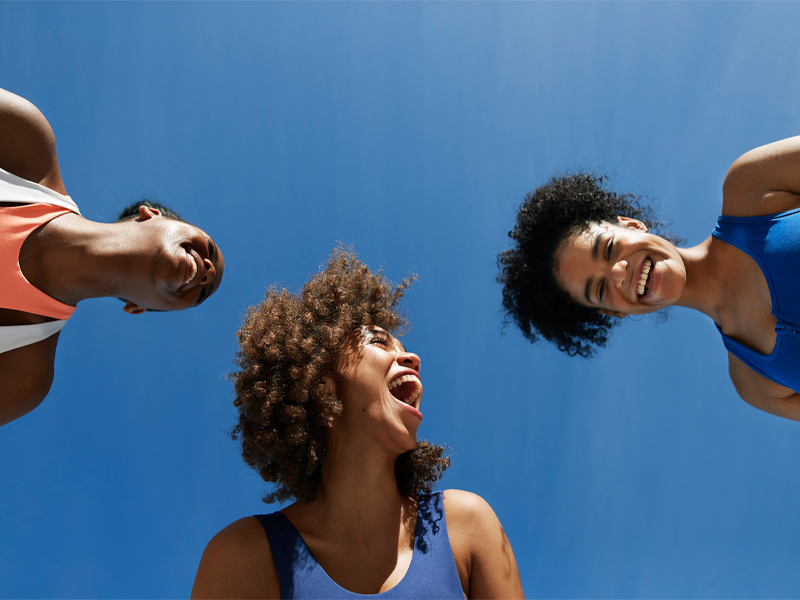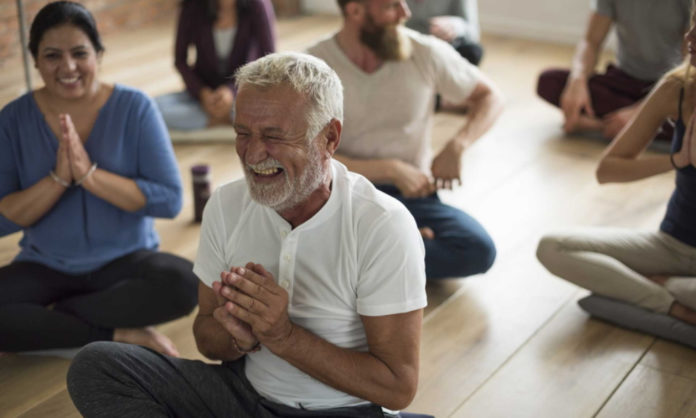Nothing beats a good laugh, and research demonstrates the enormous advantages laughter has for both physical and mental health. Dr. Madan Kataria describes how his “laughing yoga” groups are making the globe a happier place. Dr. Madan Kataria is a former general practitioner and the inventor of laughing yoga.
As he guides amusing fitness routines, Kataria explains, “It’s just a basic laughing and breathing exercise.” Even in difficult situations, we may practice laughing yoga, according to the author. Inhale. Retain it. Retain it. Following a few yoga positions, Kataria continues, “It lowers tension.” It strengthens your immune system and maintains a happy outlook.
What is Laughing Yoga?
Though it started off small, the practice of “laughing yoga,” which combines breathing techniques and intentional laughter, has grown into a huge global phenomenon. Numerous clubs that are often free to enter have now sprouted up throughout Asia, Europe, and North America.

Laughter yoga satisfies a deep-seated desire to laugh that is being suppressed for many reasons. Young children frequently chuckle throughout the day. However, as we age, the enjoyment gradually comes to an end as our brains develop the ability to control our emotions in accordance with the demands of others. We learn to empathize. But we are also urged to quit laughing and take life seriously. Perhaps you can recall being in trouble for inappropriate laughter from your parents or instructors. There is frequently a perception that laughing indicates that you are not adequately paying attention, working, or learning. This is acceptable at times, but not always.
Benefits of Laughing Yoga
A fundamental aspect of being a social animal is laughing (rats, chimps, and bonobos laugh, too). It is essential to the well-being of our minds, body, and relationships. Additionally, it may have played a key role in evolution, allowing our predecessors to establish bigger tribes than the neanderthals who coexisted with them. It could have even changed to make us healthier. Endorphins, which serve as a natural painkiller, are released by laughing. According to a recent study in the journal Preventive Medicine, persons in their senior years who routinely laugh with friends and family may be much less likely to experience health issues than those who do not.
Forced giggles and laugh

Do forced giggles have the same results? The 66-year-old Kataria, who has taught his method in institutions with the highest levels of security and for youngsters who are blind, is certain of its advantages. However, the body of knowledge is inconclusive, and only subpar pilot studies have been conducted. Having said that, if genuine laughter has advantages, laughter yoga could too. After all, the phony laughing usually turns into genuine laughs.
Laughter therapy has also been used for many years. After laughing became a subject of scientific study for the first time in the 1960s, Kataria’s method substantially streamlined earlier iterations. Dr. William Fry, a psychology professor at Stanford University, became the first gelotologist in 1964 after publishing a number of important research on the physiology of laughing. Gelos is a Greek word that means to laugh. After examining blood samples from people who watched comedies, his research concluded that laughing may increase the effectiveness of immune cells that combat infectious infections.
Find techniques to make yourself laugh so that you can feel cheerful and healthy since it may be advantageous to you in terms of mental and physical health. Learning to be self-sufficient and not needing people to make you happy is crucial in the long run.









































